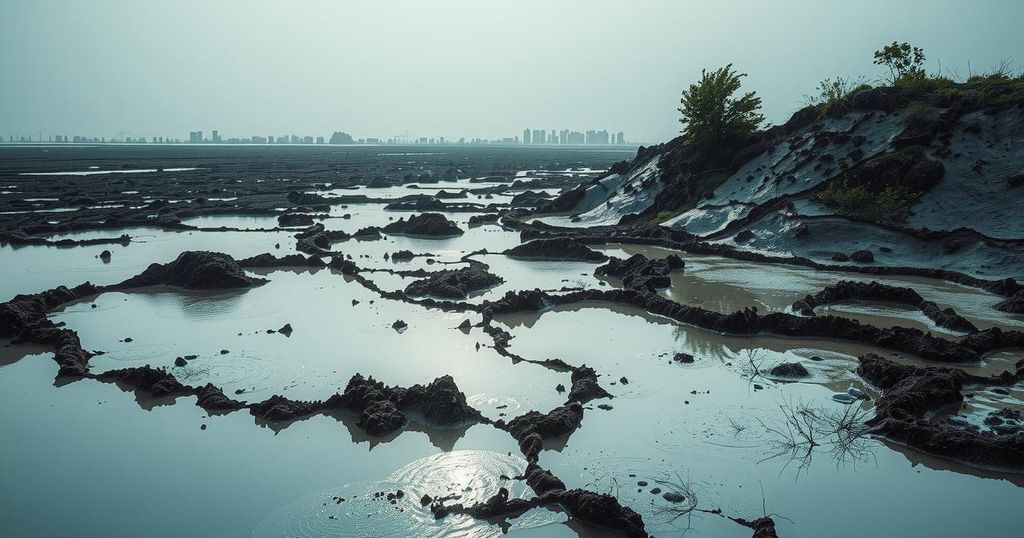In South Sudan, floods exacerbated by climate change have contaminated local water supplies with oil pollution, impacting public health severely. Residents are left with few alternatives as they struggle with the dire consequences of unsafe water, including reported increases in birth defects and cattle deaths. Political and environmental experts call for urgent action amid a backdrop of instability and reliance on oil revenue.
In South Sudan, climate change has led to devastating floods that are exacerbating problems related to oil pollution. Residents in flooded areas, like Roriak, are consuming dangerously polluted water, largely due to chemicals from nearby oil fields. Local leaders and health professionals are sounding alarms about the dire lack of clean drinking water and the resultant health consequences, including severe birth defects linked to environmental degradation and oil contamination.
The ongoing floods have submerged two-thirds of Unity State, leaving communities without access to safe water, as noted by experts like David Bojo Leju. He highlights how flooding has washed pollution into local water supplies, calling the situation a silent catastrophe. The situation is aggravated by South Sudan’s dependence on oil as a primary revenue source, further complicating efforts toward environmental responsibility amid political instability and civil unrest.
Authorities are concerned over the possibility of widespread health implications stemming from polluted water. Anecdotal evidence suggests a rise in congenital abnormalities, observed by medical professionals treating affected communities. Dr. Samuel Puot discussed observational cases of birth defects potentially related to contaminated water sources, emphasizing the absence of systematic data collection to understand the full extent of the issue.
Mary Ayen Majok, a senior politician, emphasizes the endemic problems rooted in poorly managed oil practices when South Sudan inherited existing operations at its independence. The government has engaged in efforts to conduct environmental audits, but transparency remains an issue as results have yet to be shared publicly. The prevailing sentiment suggests a need for stronger accountability from oil-producing entities to safeguard the health of affected populations.
Climate experts, including Dr. Chris Funk, are closely monitoring the situation, predicting increasing rainfall and heat due to climate change which might render some parts of South Sudan uninhabitable. Despite these daunting challenges, residents express hope for recovery and return to normalcy, clinging to dreams of a sustainable life once water levels recede and land becomes cultivable again. Citizens engage in efforts to adapt and survival strategies amidst the ongoing humanitarian crisis.
This article focuses on the intersection of climate change and oil pollution in South Sudan, particularly highlighting the impact of severe flooding on local communities. With Unity State as a central example, the narrative delves into the consequences of oil extraction and mismanagement in the face of devastating environmental conditions, compounded by existing governmental challenges. The social, health, and economic implications for residents reliant on agricultural and livestock livelihoods unveil a complex crisis that requires urgent attention and comprehensive intervention.
The plight of South Sudanese communities facing climate change-induced floods underscores a critical connection to oil pollution, demanding urgent action for clean water access and environmental accountability. Healthcare professionals are increasingly concerned about the rising tide of pollution-related health issues, including congenital deformities, as political representatives advocate for better practices. As affected regions seek recovery and resilience, ongoing scrutiny of oil practices and climate strategies will be fundamental to restoring normalcy.
Original Source: www.bbc.co.uk






